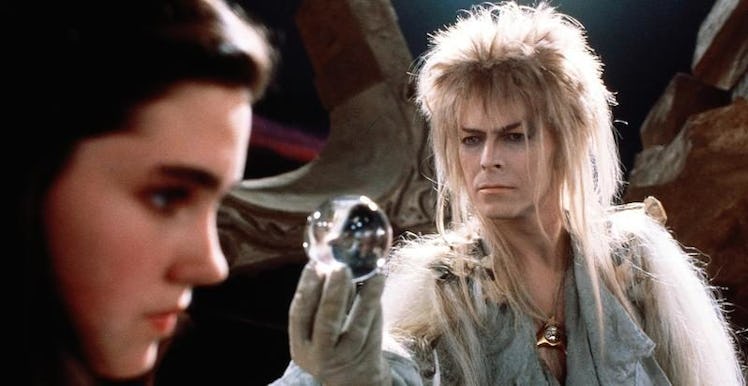
6 Stages Of Grief We Go Through When Our Childhood Icons Pass Away
It was a semi-normal day.
I was driving to get my nails done (because priorities), and my father called.
Amidst casual father-daughter conversation, he interjected with, “I heard Heath Ledger died today.”
I quite literally yelled into the phone.
"What?"
Then, I immediately pulled over.
I started to cry ferociously, and I muttered some indiscernible questions through my sadness.
It was a truly terrible day.
But, I was reminded of it last week when two of my most beloved artists, Alan Rickman and David Bowie, were laid to rest.
While Heath was a special circumstance because he was so young and it was unexpected, the feelings I navigated that week are identical to the ones I felt as I mourned these two great men.
In the back of our minds, we know that untimely, unlikely and even unpredictable deaths of those we love are around the corner.
But how do we deal with the deaths of our childhood icons?
What happens as we mourn people who hold such special, formative places in our lives?
These are the emotions we all suffer through:
1. Anger
Unfortunately for Dad, he was also the same person to break the news to me about David Bowie.
One of my immediate sentiments was a feeling of outrage.
Why did Bowie — this iconic, beautiful, progressive artist — have to die, while numerous lecherous politicians and criminals still live?
Why did this great human being have to go?
2. Immense Sadness
I burst into tears immediately at the news of Bowie’s death, and I clearly also did at Heath’s.
We know our beloved artists will one day die. It is part of the equation of us growing up.
We know death — even a young death like Heath’s — is inevitable.
3. Public Mourning
We feel great, powerful connections to these men and women who shape our lives and imaginations.
It is only natural to want to send our mourning out into the world where someone can acknowledge how much these icons meant to us.
Public mourning is really our only option when it comes to great artists or public figures.
We didn’t know them personally, but they impacted our lives and the people we have become.
We want to share those positive feelings, despite the overwhelming sadness that ensues after their deaths.
4. A Desire To Revisit
We listen to our favorite Bowie songs, watch "Labyrinth" and watch "Harry Potter."
We revisit all those meaningful spaces, places and memories those icons inhabited.
This compounds our sadness in a way.
5. Fear Of Who Is Next
As we get older and our icons start to pass away, we dread the news of their deaths more and more.
Even Neil Gaiman lamented his lost opportunity to meet Bowie.
It is a strange feeling to be in the same place, yet so far from those who shape us and teach us about life.
Our emotions are nonetheless very real.
6. Resolve To Never Forget
I think about how I will teach my future children about Bowie and Rickman.
I will show them the great man who was Severus Snape, and I will not let these men fall into obscurity.
It is a cultural effort, though it exists on personal fronts.
When our icons leave us, we insist we will not forget what they taught us or how we loved them.
We buy tattoos and shirts. We repurchase great films and music.
We honor them the only way we know how.
In these days of sadness, remember that we lived in the same time these individuals did.
We are blessed to have known of them.
Cherish the memories you have, for we are all not long in this place.
Our icons are a part of us. They will never die as long as we remember them.
Our strong feelings for the ones we admire let us know things do matter.
People matter, and collectively, we can find meaning in their lives.
F*ck, we are old.